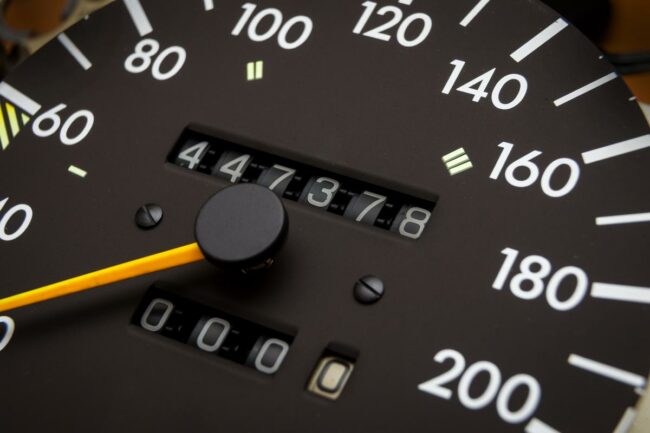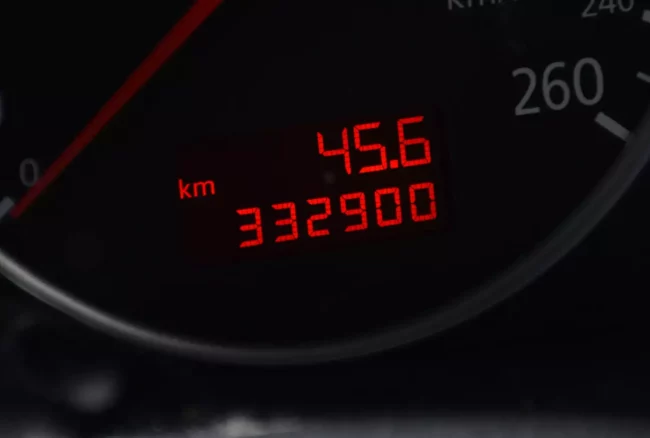
Buying a new automobile has always been challenging. We must take into account a wide range of variables, including brand, model, amenities, and, of course, mileage. A typical question among prospective purchasers is how many miles should a new car have. There is no one-size-fits-all car; it is crucial to pick one with a reliable mileage range. You will learn more about the variables that affect a new car’s mileage and be better able to choose the one that best suits your needs.
The Importance of Mileage in New Cars
Understanding the Odometer
When determining the mileage of a new automobile, one of the first considerations should be the odometer. The vehicle’s odometer records the mileage the car has covered during its lifespan. When we speak to “new” cars, we generally mean those with little mileage, frequently those with fewer than 10,000 miles on the clock.
Factory Fresh: The Benefits of Low Mileage
Low mileage cars come with several advantages. Firstly, a vehicle with fewer miles is likely to be in better overall condition. Components experience less wear and tear, leading to fewer maintenance issues and potentially a longer lifespan for the vehicle. Additionally, a low-mileage car might still be covered by the manufacturer’s warranty, providing added peace of mind.
The Depreciation Dilemma:
While low mileage is desirable, it’s important to consider the depreciation factor when purchasing a new car. As soon as you drive a brand-new car off the lot, its value depreciates significantly. This depreciation continues over time and is influenced by factors such as mileage, age, and overall condition. Consider a slightly used automobile with a few more miles on the odometer if maintaining the car’s resale value is a concern for you.
Determining the Ideal Mileage Range
Balancing Mileage and Price
Your spending limit and top goals are important factors to consider when choosing the ideal mileage range for your new vehicle. You may probably find choices with mileage in the low single digit thousands if you’re ready to spend more for a car that is in excellent condition and has low miles. However, if you have a tighter budget, choosing a car with a little greater mileage can be a wise decision. Vehicles with 30,000 to 40,000 km are regarded by many experts as “lightly used” and yet in great condition.
Consider Your Needs
Another crucial aspect about how many miles should a new car have is to consider is your specific needs as a car owner. Sometimes higher mileage vehicles are better options. These cars often come at a lower price point, allowing you to allocate your budget to other priorities, such as advanced safety features or enhanced technology. Furthermore, whether you’re searching for a collector’s item or a classic automobile, low mileage might help preserve the vehicle’s originality and worth.
Maintenance and Vehicle History
Regular Maintenance
Despite the importance of mileage, it is critical not to underestimate the influence of regular maintenance on a car’s condition and reliability. Regular maintenance, such as oil changes, tire rotations, and fluid replacements, is critical to the vehicle’s lifetime. A well-maintained vehicle with a higher mileage may outperform a neglected vehicle with a lower mileage.
Vehicle History
In addition to maintenance, obtaining a comprehensive vehicle history report can provide valuable insights into the car’s past. These reports highlight any accidents, repairs, or potential red flags that might impact your decision. Even a car with lower mileage may have a troubled history, while a higher-mileage car with a clean record could be a reliable choice.
Tips for Evaluating Mileage in a New Car
When assessing the mileage of a new car, consider the following tips:
- Research the average mileage range for the specific make and model you’re interested in to establish a benchmark.
- Take into account the car’s age alongside the mileage. A slightly older car with low mileage may be a good option.
- Inspect the vehicle’s overall condition, including the interior, exterior, and engine, as it can indicate how well it has been maintained.
- Request a test drive to get a feel for the car’s performance and any potential issues.
- Consult with a trusted mechanic or car expert to conduct a thorough inspection before making a final decision.
Mileage Blocker – The Device That Helps With Your Car Mileage
A mileage blocker made from a Super Kilometer filter has achieved enormous popularity. It’s easy to see why it has the top Odometer Blocker review. A high-quality German product is preferable than counterfeits. The stopper is intended to interrupt mileage recording from all control devices. It offers several benefits that distinguish it as a one-of-a-kind module. These benefits are as follows: It has an untraceable effect, Do-it-yourself installation,
Conclusion
When it comes to determining the ideal mileage for a new car, there’s no one definitive answer. It’s essential to consider your budget, priorities, and the overall condition of the vehicle. While a low-mileage car may offer peace of mind and potentially better long-term reliability, a slightly used vehicle with a few more miles can provide significant cost savings without compromising quality. Ultimately, finding the right balance between mileage and price will ensure you drive away with a new car that meets your needs and preferences. Remember to consider maintenance records and vehicle history as additional factors in your decision-making process. By carefully evaluating these aspects, you’ll be better equipped to make an informed choice and find the perfect new car for you.
Latest Posts
- 1
- 2
Is Buying a Car with Over 100k Miles a Good Idea?
April 10, 2024 - 3
Why Are High Mileage Cars So Expensive? – A Guide
April 5, 2024 - 4
Where Is The Mileage Located In A Car?
April 3, 2024 - 5
Whats High Mileage in Vehicles?
March 29, 2024 - 6
What’s The Gas Mileage On A Smart Car: A Comprehensive Guide
March 27, 2024 - 7
At What Mileage Should You Sell Your Car?
March 22, 2024 - 8
Should You Buy a Car with Over 100k Miles?
March 20, 2024 - 9
Should You Buy a Car with 100k Miles?
March 15, 2024 - 10
Understanding ODO Meaning in a Car
March 13, 2024








